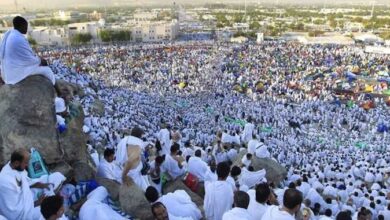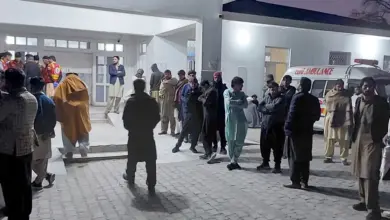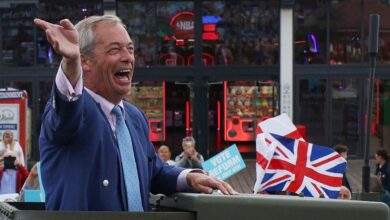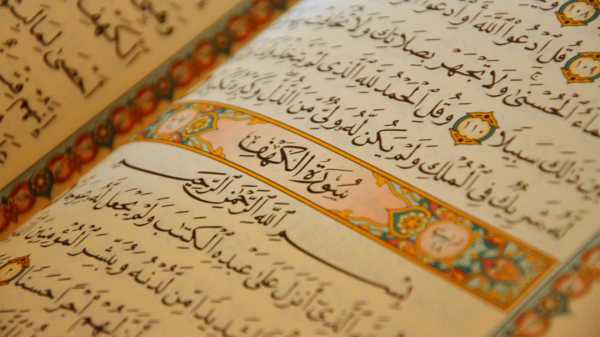London– How Fair Is Britain, the first of what is expected to be a three yearly report was published last week by the United Kingdom’s Equality and Human Rights Commission. Hundreds of pages of data are examined from various vantage points to dissect British society. And it appears that when the country is divided according to religion, its Muslim communities are not faring so well.
They are the least employed (with only 47 percent of men and 24 percent of women employed), the least qualified (24 percent of men and 33 percent of women have no qualifications) and experience the biggest pay gaps (of 17 percent for men and 22 percent for women) compared to white males.
The report does not offer explanation or analysis of the thousands of statistics it presents, and instead leaves the reader to wonder why some groups are excelling where others aren’t. A lot of Muslim communities live in more deprived urban areas which means that socio-economic factors are at play. However, they have also been the victims of negative stereotyping and prejudice since the 11 September terrorist attacks in the United States. The situation begs the question as to whether there is a link between this type of social disadvantage and Islamophobia.
An example of the sort of prejudice can be found in a survey carried out in the summer by the Islamic Education and Research Academy, Perceptions on Islam and Muslims: A study of the UK Population, which found that 75 percent of participants believed Islam and Muslims had a “negative contribution” to society. It also found that 80 percent had “less than very little knowledge” about Islam, only 20 percent had come into contact with the Quran (as opposed to 95 percent with the Bible) and 76 percent had never spoken to a Muslim about Islam.
Baroness Sayeda Warsi, the UK’s first female Muslim minister (as of May this year), said, “Anti-Islamic sentiment is the last socially acceptable form of bigotry in Britain today.”
Tabloid press with headlines screaming “Muslim plot to kill pope” and “tube driver’s bid to wage holy war” are all demonstrations of Warsi’s alarm.
Liz Fekete, director of the Institute for Race Relations who has written extensively on Islamophobia in Europe, believes that the debate around immigration and integration is key and that this is a problem rooted in the response to the 11 September attacks, as a result of which immigration measures started to be formed in a security context. Fekete explains how immigration has become a central policy issue, as politicians have prioritized immigration and whipped up fears in a very irresponsible way, vying to be the one who can protect us from the hoards at the gate that want to come in and take advantage of us.
Immigration from Muslim countries has become the focus, as Muslims are cast as the carriers of a backwards culture and unwilling to integrate. Extreme right wing groups such as the English Defense League (EDL) cash in on this racist fear-mongering as they battle what they call the Islamisation of Europe – casting Islam as an alien force out to destroy superior Western values.
The EDL was created to combat what it calls “capitulation to Muslim extremists” and their website asserts that, “It’s about time that people stood up for English culture against this Islamist assault and the political correctness that seeks to appease it.”
Included in this quest to preserve English culture was the furor last month that eateries in the UK may be serving halal meat without declaring it. The EDL staged protests over this outrage to English values and traditions but it was an issue widely reported in the mainstream media as a regular news item that concerned animal rights. The Islamophobic undertones were hard to miss.
The climate of Islamophobia has affected both individuals and communities psychologically and socially. Salman Farsi is a British Muslim of Bangladeshi origin and is communications officer for the East London Mosque and London Muslim Centre located in Tower Hamlets, one of London’s most disadvantaged areas and home to a large Muslim community. He explains that post 9/11 Muslims, “Are having to cope with the ‘fallout’ of global terrorism and somehow being held to account for another’s distorted ideology and practices, which does not strike a chord with their own views of Islam…[they are] having to explain, be apologetic and prove to the general masses that one is not an ‘extremist’ or an ‘Islamist’ and just a regular Muslim.”
A community under siege could easily turn in on itself and become just what it is accused of being – a parallel society disloyal to its host country. However, there is evidence that in the face of hostility this is not, on the most part, the direction in which British Muslims are heading. Fekete is optimistic. “Some will internalize, some will retreat into religion, others will rebel by wanting to be more combative….the overwhelming evidence is that young people are becoming more active in democratic processes, becoming more politically active.”




